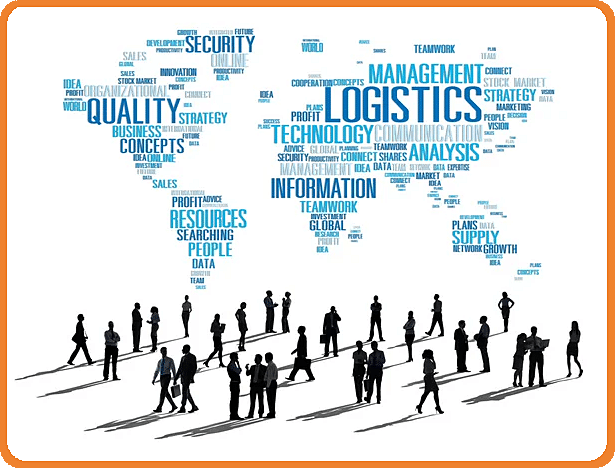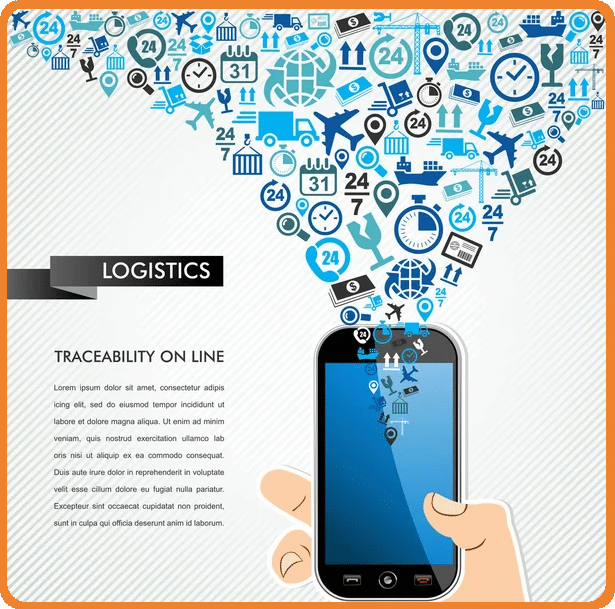Logistics management plays a critical role in the success of any supply chain. In today’s fast-paced, interconnected world, the demands on logistics systems are greater than ever. To remain competitive, businesses must adopt logistics strategies that emphasize speed, information sharing, diversity, and a human-centered approach. These characteristics not only ensure efficiency but also drive innovation and customer satisfaction.
1. Speed: The Need for Rapid Logistics
Speed is at the heart of modern logistics management. The ability to move goods quickly and efficiently is a key determinant of supply chain success. Rapid logistics are essential for minimizing delays, reducing transit times, and ensuring that goods reach their destinations as quickly as possible.
Achieving fast logistics requires a combination of advanced transportation systems, sophisticated logistics management tools, and event-driven management practices. By utilizing real-time tracking technologies, companies can monitor shipments at every stage, allowing for quick responses to any potential issues. Additionally, optimizing transportation routes through the use of algorithms and data analytics helps reduce travel time and costs, making the entire logistics process more efficient.
Incorporating just-in-time (JIT) delivery systems further enhances the speed of logistics by ensuring that goods are delivered exactly when needed, reducing inventory costs and minimizing the risk of overstock or stockouts. Ultimately, quick logistics enable businesses to respond rapidly to market demands, providing a competitive edge in an ever-changing global marketplace.

2. Information Sharing: Enhancing Visibility Across the Supply Chain
Information sharing is a cornerstone of effective logistics management. In contrast to traditional, vertically integrated models, modern logistics systems emphasize seamless information flow across all levels of the supply chain. This network-based approach allows for real-time communication and coordination, enabling companies to make informed decisions quickly.
The integration of logistics information with the broader supply chain ensures that all stakeholders have access to the same data, reducing the risk of information distortion. Technologies such as cloud-based platforms and the Internet of Things (IoT) facilitate this integration by enabling real-time data exchange across the supply chain. This visibility helps prevent inefficiencies, eliminates non-value-adding processes, and reduces operational costs.
Moreover, advanced information sharing tools support predictive analytics, allowing businesses to anticipate changes in demand and adjust their logistics strategies accordingly. By leveraging these insights, companies can optimize their supply chain operations, improve customer service, and maintain a competitive advantage.

3. Diversity: Adapting to a Variety of Logistics Needs
Diversity in logistics refers to the ability to handle a wide range of goods and transportation methods. This flexibility is essential for meeting the varied requirements of different industries and markets. Whether transporting perishable goods, hazardous materials, or oversized cargo, a diverse logistics strategy ensures that every shipment is handled in the most efficient and appropriate manner.
Multimodal transport solutions, which combine different modes of transportation (such as road, rail, sea, and air), are a prime example of logistics diversity. These solutions offer the flexibility needed to overcome geographical constraints, optimize delivery times, and reduce costs. Additionally, specialized handling techniques and customized packaging solutions are crucial for protecting goods during transit, especially when dealing with delicate, perishable, or hazardous materials.
By embracing diversity in logistics, companies can tailor their operations to the specific needs of their customers, enhancing service quality and ensuring that goods are delivered in optimal condition. This adaptability is key to navigating the complexities of global supply chains and responding effectively to changing market conditions.

4. Human-Centered Logistics: Putting the Customer First
In an era where customer expectations are higher than ever, human-centered logistics have become increasingly important. This approach focuses on understanding and meeting the specific needs of customers, ensuring that logistics services are not only efficient but also user-friendly and responsive.
Human-centered logistics involve more than just delivering goods on time; it encompasses the entire customer experience. This includes providing transparent, reliable services, offering personalized solutions, and continuously improving based on customer feedback. For example, the use of eco-friendly packaging and efforts to reduce the carbon footprint of logistics operations align with the growing consumer demand for sustainability.
By adopting a customer-centric approach, logistics providers can build stronger relationships with their clients, enhance customer satisfaction, and foster long-term loyalty. Human-centered logistics also drive innovation, as companies are constantly seeking new ways to improve their services and meet the evolving needs of their customers.
Experience the Future of Logistics with TONLEXING
At TONLEXING, we understand that efficient logistics management is the backbone of successful supply chains. Our comprehensive suite of services is designed to meet all your logistics needs, ensuring quick, reliable, and cost-effective transportation solutions. From real-time tracking to advanced information sharing and diverse transport options, we tailor our services to your specific requirements. Our commitment to sustainability and customer-centric operations ensures that your goods are handled with the utmost care and efficiency. Join us in revolutionizing the logistics industry with cutting-edge technology and unparalleled service.

